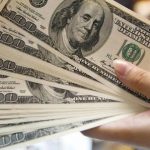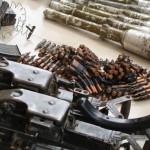Inflation: Nigerians To Spend 54.9% Income On Food In Next Six Months, Says CBN
Business News, Latest Headlines Monday, September 2nd, 2024
(AFRICAN EXAMINER) – The rising inflation rate will force Nigerian households to spend the largest amounts of their earnings on food in the next six months, a recent survey by the Central Bank of Nigeria (CBN) has shown.
This is as the most recent report by the National Bureau of Statistics (NBS) puts the inflation rate at 33.40 per cent, and food inflation over 40 per cent.
According to the CBN report, the poll was conducted from July 22 to 26, 2024, with a response rate of 99.7 per cent with its sample size drawn from the NBS master sample list of 1,665 households in the 36 states of the federation and the Federal Capital Territory.
The report, Household Expectation Survey published on its website, CBN said many Nigerians intend to cut down on items that are not essential now, in the next three and six months.
They, however, plan to spend 54.9 per cent of their income on food items in the next six months.
“Spending outlook for the next six months showed that consumers plan to spend a substantial amount of their income on the following items: food and other household Items (54.9 points), education (35.4 points), transportation (30.2 points), electricity (20.0 points) and medical expenses (12.2 points),” the poll shows.
On the flip, the respondents do not plan to spend a substantial amount of income on big-ticket items such as the purchase of a house, car and household appliances.
Also, Nigerians do not intend to spend on investment, such as acquiring landed properties or other forms of investments. They equally do not plan on saving their incomes.
“This reflects their family financial situation in the current month and reaffirms their stance that they will be drawing down on their savings or getting into debt,” the apex bank survey shows.
The overall perception of inflation in July 2024 showed that 83.7 per cent of the respondents
believed that the current level of inflation was high with an index of -61.1 per cent.
A breakdown of the responses revealed that businesses at -58.7 points, have a slightly lower index compared to households (-63.3 per cent).
This indicates that businesses were less pessimistic in their outlook as their current month inflation rate perception is slightly better than that of the households. A further breakdown shows that large businesses believed that the current level of inflation was too high with an index of -70.8 per cent.
Further breakdown by income group revealed that respondents in the ₦150,001-
₦200,000 income group believed that inflation in the current month was too high with an index of -66.4 per cent.
The above ₦200,000 income group which stood at -58.3 index per cent, had a less negative index, indicating the least pessimism on inflation expectation for the current period.
The CBN survey also revealed that many Nigerian households expect the naira to continue to fall over the next three months but strengthen in the next six months.
The local unit plunged to ₦1,598 per US dollar on Friday, ending the month of August negative. This is even as it further fell to ₦1,639 per USD due to the shortage of the greenback.
The development comes as the naira made some gains at the beginning of the second quarter of the year, but began to fall, making it the world’s worst currency after the Lebanon pound.
The respondents are however optimistic that the CBN’s monetary policy decisions will see the battered naira make a turnaround in the beginning of the coming year, 2025.
Also, the poll shows that Nigerians expect inflation, borrowing rates and unemployment to keep rising due to the harsh macroeconomic pressures.
The respondents believed that the economy would end up weaker rather than stronger should prices start to rise faster than they do now.
“The survey result showed that 80.9 per cent of the respondents believed that the economy would end up weaker, while 3.2 per cent opined that it would be stronger,” the CBN survey revealed.
Factors that played a crucial role in shaping the perception of inflation among businesses include: Energy costs increased from 90.6 points in June to 91.8 per cent in July, making it the top driver.
The exchange rate remained consistently high with a slight increase from 88.3 in June to 88.8 in July. Transportation is the third driver of inflation during the review period with 88.5 per cent.
Related Posts
Short URL: https://www.africanexaminer.com/?p=97575






















